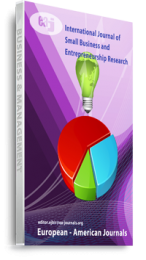This study aims to examine the effect of environmental uncertainty on entrepreneurial success amongst 9,450 small and medium enterprises (SMEs) who are registered members of the National Association of Small and Medium Enterprises (NASME), National Association of Small Scale Industrialists (NASSI) and Association of Small Business Owners in Nigeria (ASBON) in Lagos State. Proportionate stratified random sampling method was used to select samples from the sampling frame. Sample size of 381 used for the study was determined using the formula developed by the National Education Association (1960). Primary data on the dependent variable (Entrepreneurial success) and independent variable (Environmental uncertainty) was collected using questionnaire as research instrument. Environmental uncertainty measures are dynamism, complexity and hostility while measures for entrepreneurial success are profitability, market share, net asset growth, sales growth and government policies. The questionnaire was pretested by a pilot study of 50 selected SMEs. Data obtained from the pilot study was analyzed and based on the result, the questionnaire was slightly modified giving an overall Cronbach’s Alpha value of 0.791. The statistics of the model summary reveal correlation co-efficient R = .519 indicating that the combined influence of the three predictor variables of dynamism, complexity and hostility has a strong positive relationship with entrepreneurial success. The R square is .269 or 26.9% signifying that the combined influence of the predictor variables explains 26.9% of the variations in entrepreneurial success. The value of F (3,206) = 25.321, p <.05, shows that the combined effect of dynamism, complexity and hostility was statistically significant in explaining changes in entrepreneurial success in Lagos State. This is confirmed by a p value which is less than the acceptance critical value of 0.05. The model shows that the regression coefficients results for both dynamism (β = .155, t = 2.390, p = .018) and complexity (β = .464, t = 7.392, p = .000) indicate positive and significant relationship with entrepreneurial success in Lagos State. The finding indicates that a unit increase in both dynamism and complexity of environmental uncertainty would lead to increase in entrepreneurial success in Lagos State. The regression coefficients for hostility (β = -.155, t = -2.484, p = .014) indicate a negative relationship with entrepreneurial success, though the relationship was significant, p <.05. Complexity measure has the highest influence on entrepreneurial success with a p value was 0.000 followed by hostility with a p value 0.014, and then dynamism with a p value of 0.018.
Keywords: Dynamism, Entrepreneurial success, Environmental Uncertainty, Hostility, Optimism

